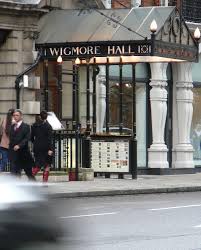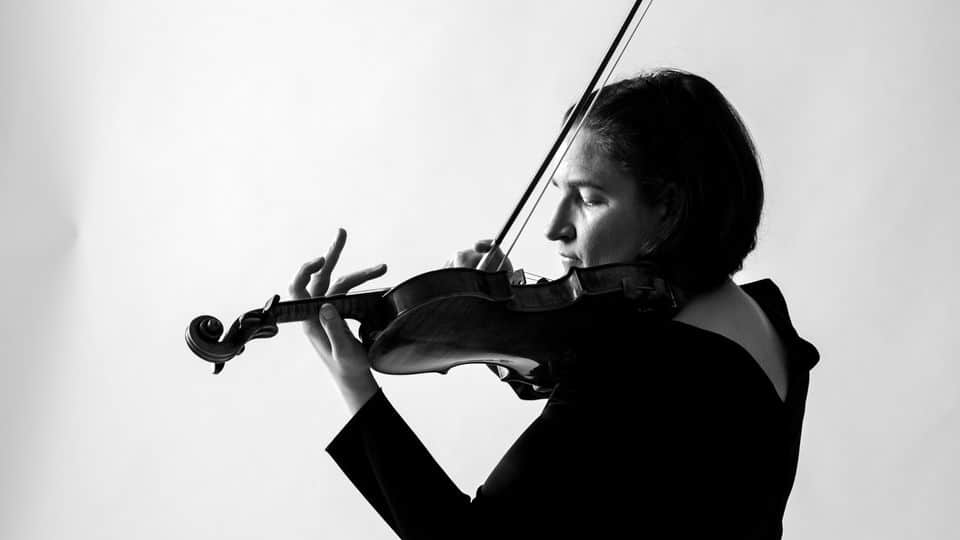In London, it’s one closure after another
mainFirst the Royal Opera House.
Then Wigmore Hall: In accordance with Public Health England’s guidance, Wigmore Hall will be closed from Tuesday 17 March until at least Tuesday 14 April. We are very sorry to announce therefore that all concerts and events in this period are cancelled. Very many international artists are unable to travel here in any case due to ongoing restrictions.
The English National Opera: Following the Government’s advice that all non-essential travel and socialising should stop to help contain the spread of the Coronavirus, we have made the very difficult decision to close the London Coliseum to the public with immediate effect and until further notice.
Followed by Hamilton and the whole of the West End.

No word yet from the Southbank Centre and Barbican, but it’s a foregone conclusion.





Wondering if ENOs hesitance is due to an inability to remain solvent in light of the cancellations. A large portion of its season’s performances are during this period and the company hasn’t been on solid footing in years.
Just a thought?
Scottish Opera has closed down. Scottish Ballet does not seem to be in performance and has Covid updates on its site.
Are we just pushing the problem into the cupboard under the stairs, to fall out when we open it?
What is the problem?
What I was trying to say was that if we close everything for a few weeks or months, and the disease does not spread because nobody is facing anybody else, won’t they then open things up and what if some people actually were infected, not cured but just isolat4eed, won’t the whole problem start all over again?
That is possible, but if the isolation stops it spreading, then it might get almost eliminated by then as people with it recover.
Also, there are some hopes for a vaccine by then. Lastly, while we can’t know for sure, it may well find it difficult to spread in the summer months.
The LSO at the London Barbican are currently emphasising that they are continuing :
https://lso.co.uk/more/faqs.html
The Barbican is now closed until further notice, so the LSO won’t be playing there.
The majority of Arts organisations and venues will fold absent govt intervention, and their employees will be impoverished.
They probably won’t fold. But they might not pay many of their bills.
Incredibly they’re honouring artists contracts until the end of the season, the first to announce they’re doing so.
The government can’t just tell people not to go to these places, particularly bars and restaurants, as they can’t claim off the insurance unless they say they have to close. Hence otherwise most will go to the wall.
The enormity of this crisis in public health, finance and culture has dwarfed any measurable effects from Brexit and virtually wiped it from attention.
I went to Southbsnk centre this evening and asked Ms receptionist about the closure. She said ‘Not yet’. Some concerts are cancelled but they are not closed yet.
Wigmore, ROH, are highly dependent on a small number of artists from abroad who may no longer be able to travel in, or who wish to return home quickly. Closing the venues is a quick, clean and clear solution.
Barbican and Southbank, meanwhile, have plenty of foreign artists performing there, but also many more local artists, who are all available (the more so since foreign tours will have been cancelled) and willing to perform.
Foreign conductors and one or two soloists for ‘local’ orchestras (LSO, BBCSO, Philharmonia, LPO, e.g.) are replaceable with UK-based high-calibre artists, and the concerts could still go ahead artistically, in a way which Wigmore and ROH would struggle with.
I suspect ROH’s closure is driven largely by this practicality. It is unfortunate that once a couple of big houses close, others may feel that they have to follow suit, even if it may not be wholly necessary. In times of uncertainty, do we not need music more than ever?
Thank goodness the right decision has been made ,for it would be foolhardy in the present circumstances to continue ,the show MUST NOT GO ON .
Psych op likely
It is remarkable that performances in London lasted this long. This is the most serious crisis that I have witnessed in normally prosperous countries in my own life time, at least so far. By the end of this crisis the world will not be the same. Many hotels, airlines, businesses, art companies will go bankrupt and cease to exist. There will be a world wide economic recession.
Barring world wars, surely the worst crisis ever.
Going bankrupt does not mean the organisation ceases to exist. It just means it can not pay its bills. Bankruptcy usually means that the bills are not paid, but the organisation continues. (Tough luck if you are owed money).
Is it not yet dawning on you people that the world economy is being effectively trashed to protect the over 70 cohort – especially when a vaccine isn’t far over the horizon? If you are over 70 remain at home, safe, and let the younger generations have their livelihoods, an economy and a chance to thrive. If you think unprecedent world debt levels are a panacea do think again. 1929 awaits.
The scorched earth policy is an unmitigated disaster and there will be an opportunity cost. Most definitely.
Congratulations! Your credentials as a “malignant troll” are intact. Buzz off!
Huh? “Lets kill the over 70s”. Just bizarre.
The enthusiastic union of postwar sound artists in the Netherlands, the Dutch Useless Music Brigade (DUMB), of which all members are over 70, have discided to stop composing for 3 months out of solidarity with management staff of musical institutions who are in the difficult position to have to fire their players.
Both the Barbican and the South Bank Centre have now closed